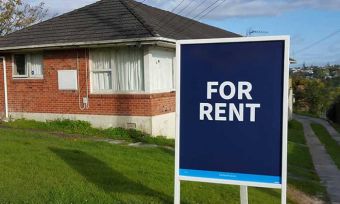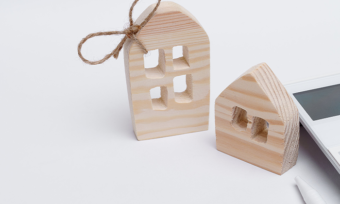Co-Author: Olivia Fairhurst
While we talk about the struggles of young New Zealanders trying to get their foot in the door in the property market, let’s not begrudge those lucky enough to consider investing in property. For those in-the-know, property investment can be a very wise financial decision. On the other hand, going in blind can lead to unmanageable repayments and a stressful experience.
For some, investing in property is the next step to building up wealth, and that may be exactly the right decision to make. But there’s a lot to consider before diving in headfirst.
What do you need to consider before investing in property?
Before investing in property, you need to consider why it is that you are doing it. The reasons for making such a big financial commitment need to be well-thought out and make sense. While great in principle, “to secure my financial future” doesn’t cut it when it comes down to it. Instead, you need to think about your short-term and long-term goals with property, and how manageable these goals are with your own financial situation.
For instance, are you a first home buyer who is buying an investment property to rent out rather than live in it? Or, are you already an owner, or occupier, who would like to do more with equity already built up in your home?
Compare Home Loans with Canstar
Whatever your situation is – and whatever the reason is that you want to become a property investor, the core research needed will be the same.
Here are some pros and cons of investing in property.
Advantages of investing in property:
- With the current high house prices in New Zealand, you may not see profit for a while. However, in the meantime, through buying an investment property, you can build equity and essentially get renters to pay off your mortgage in the process.
- When your mortgage is eventually paid off, you will have equity as well as a long-term income stream.
- Property markets in New Zealand have historically enjoyed moderate long-term growth. Should this continue, your investment should grow in value.
- There are tax benefits associated with holding investment properties, including the ability to depreciate fixtures and fittings over time.
- If you choose to negatively gear a property, you may be eligible to receive tax deductions over future property investments.
Potential disadvantages of property investment
- There is a risk that the value of your property may be worth less than what you paid for it. Any capital loss is magnified when leverage is involved.
- Your property may not always be tenanted and in a worst case scenario, you may be forced to sell.
- You may face financial loss if tenants damage your property, become unruly or become difficult to evict. While tenants pay a bond, this may not be enough to cover costs.
- Repairs and maintenance expenses could become significantly high – there is never a sure-fire way to determine how the house may age, when you buy an investment property.
- Interest rates, and other costs, could rise significantly, impacting your ability to service your loan.
Property investment advice: Five tips for having a rentable investment property
When you’re out visiting houses up for sale, it pays to think about what aspects of the property carry value – making it easier to rent out or sell on later.
Check that your renters have:
| Some amenities close by |
|
Renters won’t expect every store under the sun to be on the doorstep. But having at least a supermarket not too far away will increase your chances of renting your property out. |
|---|---|---|
| Appreciation Potential | Pick somewhere that has appreciation potential – this means that with renovation, you can increase the rental price significantly. | |
| Heating/insulation | Cold, damp houses will have renters running for the hills. | |
| Fixed windows etc. |  |
You’re not going to get renters in if you’re holding windows together with duct tape. |
| Reasonable rent | Yes, you have bought the property to rent out as an investment. But don’t hike the prices so high no one is prepared to pay it. |
What return could I expect when investing in property?
The potential return you could expect from investing in property is, of course, a key factor when deciding whether to go ahead. The return generated will be dictated by a number of variables, such as the tenancy rate of the area you are looking at. What kind of properties rent well in this area: houses, units, townhouses or apartments? Does this area have growth potential, transport infrastructure, any main employers in the area, major retailers moving to or from the area, or other major projects happening?
Once you have ascertained the rental return you could expect and the sum you would have to borrow for a home loan, you can start doing the figures for an idea on expected gain or loss. Don’t forget to include the actual rental expenses (management fees, maintenance costs, landlord insurance), along with depreciation and/or building allowances.
Is an emotional attachment enough to invest in property?
Having an emotional attachment is not strong enough of a reason to invest in property. When considering residential property as part of a diversified portfolio, investors should put the emotions to one side and think about the following:
Is the return generated proportionate to the risks?
Finding out whether the return generated is proportionate to the risks includes comparing the profits with what you would get in a term deposit. If your property investment generates net returns after expenses lower than a term deposit (but with far greater risk), you need to consider the validity of investing in property. Any investment involves a risk/return trade-off. If alternate assets provide a better risk/return profile, then property may not be the best option.
What is an exit strategy and why do I need one?
An exit strategy is a plan in place, should you face a financial situation where you need to let go of the property. The rule of thumb is to develop a plan ahead of time, when the conditions are favourable, so that you’re not acting on impulse. At this stage, you should determine a point in which you would sell the property to prevent any capital loss or further financial loss.
Access to a line of credit or tapping into savings accounts can buy you time in such situations.
Can you bank on rising asset prices for your investment strategy?
Unfortunately, you can’t just bank on rising asset prices for your investment strategy; changing markets mean it’s not a foolproof solution. Often the best property investments are those that generate enough income on a standalone basis, without the need for capital growth.
Buying is exciting and scary at the same time, so ensure you minimise your risks and maximise your potential profits. Do all the research needed, including comparing home loan rates. Talk to a financial planner or accountant. But, above all, keep your eye on the prize – and your finances.






Share this article